Located on the western coast of Norway, Bergen is known for its picturesque scenery, rich cultural heritage and thriving art scene. While the cost of living may be high, wages are also generally high, and the quality of life and lifestyle in Bergen more than make up for it. Although the city has a strong economy, a relaxed and informal work culture allows a good work-life balance in Bergen, and residents can make the most of the city's many attractions and amenities.
The city of the seven mountains provides plenty of opportunities for hiking and skiing, and the North Sea presents recreational boating and fishing opportunities. The weather can be challenging, though, as Bergen is known as one of Europe's rainiest cities, and expats will quickly learn not to let any sunny days go to waste.
Bergen is also home to several museums, galleries and theatres, and is a hub for arts and culture in Norway. The city hosts several festivals and events throughout the year, and it has a thriving music scene representing various genres. The Bergen Philharmonic is one of the oldest orchestras in the world, and the city is the proud birthplace of Edvard Grieg. On the other hand, Bergen also has a thriving indie music scene that has produced numerous internationally known bands like Kings of Convenience, Datarock, and Kygo.
Shopping in Bergen
From historic markets to modern malls, Bergen has something to offer everyone. Regular shopping hours are from 9am until 4.30pm on weekdays and until 3pm on Saturdays, with many shops remaining open on Sundays. Most shops accept credit and debit cards as well as cash, and contactless payments are becoming increasingly common. Shopkeepers are generally friendly, helpful and fluent in English.
Here are some of Bergen's most popular shopping areas.
City centre
The city centre of Bergen is home to a number of popular shopping areas, offering a wide range of shopping experiences that include historic squares, pedestrian shopping streets and modern malls.
Stromgaten Street is located in the heart of the city centre. It is lined with a variety of stores, including clothing, jewellery and souvenir shops, offering a range of products at different price points. Many of the shops are owned and run by families, giving the street a unique and traditional feel. Bergen Storsenter offers shoppers a variety of grocery shops and restaurants, with its roof shielding a car park and the nearby bus and train stations from the elements. Nearby is Marken, known for its high-end boutiques and designer shops.
Further west is Torgallmenningen, a historic market square and hub of activity. It is surrounded by a range of shops and is known for its traditional street vendors and food stalls, selling everything from fresh seafood to souvenirs. The market is a popular destination for those seeking a unique shopping experience as well as for those looking to sample traditional Bergen cuisine.
Nearby Torgallmenningen is Xhibition, a fairly new shopping centre. Also located on Torgallmenningen is the Galleriet shopping mall, a popular destination for those seeking a more upscale shopping experience. It features high-end and mid-range shops as well as restaurants and cafés, making it a convenient destination for shopping and dining.
Strandgaten
Leading west out of Torgallmenningen is the traditional shopping street of Strandgaten. Here, shoppers will find Kloverhuset, Norway's oldest shopping centre, established in 1852. It offers fashion, luxury and design items.
Near the harbour, Strandkaien offers a range of shops, including souvenir shops, clothing shops and restaurants. It's popular among tourists and those looking for a scenic shopping experience.
Lagunen Storsenter
Lagunen is the largest shopping mall in Bergen and one of the largest in the country, located on the city's outskirts. It offers a range of shopping and dining options, including clothing stores, electronics shops and food courts. The mall is also known for its spacious and well-designed interior, making it a comfortable and convenient shopping experience.
In addition to these shopping areas, there are also weekly markets in Bergen. These markets offer a unique and dynamic shopping experience, with vendors selling everything from fresh produce and seafood to antiques and vintage items.
Eating out in Bergen
For expats eating out in Bergen, there is a variety of dining experiences that showcase both local and international cuisine and culture. There's a wide range of options to suit different budgets and tastes.
Traditional Scandinavian cuisine is prevalent in the city, and seafood is a staple in many restaurants. Some must-try dishes include salmon, cod and shellfish, which are often served with potatoes, vegetables and other accompaniments. Another popular meal is Vannkringler, a Bergener pretzel-shaped bread, that is traditionally enjoyed with sour-cream porridge and cured meat. Additionally, the city has a strong coffee culture, and cafés are popular places for locals and visitors alike to relax, socialise and enjoy a cup of coffee.
Bergen also offers a diverse range of international dining establishments that serve a variety of dishes, including classic Italian pastas, Indian curries, Mexican tacos and more, providing a taste of home for expats from around the globe.
Nightlife in Bergen
Bergen's small size means that it doesn't have a distinct nightlife district, though there is a higher concentration of venues in the areas of Bryggen and the 'Studentbyen' (Student City) in the city centre. There are plenty of bars, clubs, pubs and other venues to explore. Whether looking for a casual night out or a lively dance party, expats will find something to suit their tastes.
Bergen has a thriving bar and pub scene with a variety of options to choose from, ranging from traditional Norwegian pubs to more modern and trendy bars, powered by the region's world-famous beer and gin. Bryggen is home to several traditional bars and pubs, while the city centre has a trendier vibe aimed at the student population. Beer fans will want to taste a Hansa Pilsener in its home town, and gin aficionados should try the award-winning Bareksten Botanical.
There are regular live music events in Bergen's bars, pubs and nightclubs, and those who plan on visiting the city centre at night won't have to worry about an itinerary – Bergen's compactness leads to a natural flow between venues.
Outdoor activities in Bergen
Bergen is a nature lover's paradise, offering a wide range of outdoor activities that are sure to satisfy even the most adventurous expats. The city is surrounded by mountains, fjords and the North Sea, making it an ideal location for outdoor enthusiasts to explore and enjoy the best that Norway has to offer.
The city of the seven mountains is home to some of the most beautiful hiking trails in Norway. With breathtaking views of the city and the surrounding fjords, Mount Floyen and Ulriken are must-visit destinations for any hiker. The city itself is easily walkable, and many hours can be spent taking in the city's historical and cultural sites. In the winter, the mountains lend themselves to skiing. Bergen is located near several ski resorts, including Voss Resort and Myrkdalen. These resorts offer a variety of ski runs for all skill levels, including cross-country skiing trails and snowboarding parks.
The Bergen region is a dream for boaters and fishers. Its many rivers, lakes, and fjords provide exciting paddling and sailing experiences and a wealth of opportunities to catch both freshwater and saltwater species. The region provides the perfect backdrop for kayaking, and visitors can explore the fjords and enjoy breathtaking views of the surrounding mountains, waterfalls, and wildlife.
See and do in Bergen
Fisherman's Wharf
One must-see attraction is the Bergen Fisherman's Wharf (Fisketorget). This historical market is the perfect place to sample fresh seafood, chat with the vendors and learn about local life and traditions. The market is a hub of activity, with vendors selling everything from seafood and vegetables to crafts and souvenirs, providing a unique glimpse into the heart of Bergen's heritage and culture.
Bryggen
The UNESCO World Heritage Site of Bryggen is a historic district famous for its colourful wooden buildings, dating back to the Hanseatic League era. A leisurely walk through its narrow, winding streets provides a glimpse into Bergen's rich history and charming atmosphere. Visitors can admire the old buildings, many of which have been converted into shops and restaurants, and get a sense of what life was like in the city's past.
Bergen Aquarium
The Bergen Aquarium offers a chance to learn about the fascinating marine life of the North Atlantic and get up close and personal with some unique and fascinating sea creatures. The aquarium provides a fun and educational experience for visitors of all ages, with a variety of interactive exhibits and live animals.
Mount Floyen
Mount Floyen is another iconic location that offers breathtaking views of Bergen and the surrounding fjords. The scenic ride on the Floibanen Funicular Railway is an experience in itself, and once at the top, visitors can take a leisurely walk or enjoy a picnic while taking in the panoramic views. Mount Floyen is also a popular hiking destination, with trails leading through the forest and offering stunning vistas along the way.
Fjord cruise
A fjord cruise is a must-do for anyone looking to experience the breathtaking natural beauty of Bergen's surroundings. With crystal-clear waters and towering cliffs, the fjords offer a stunning landscape that can only be fully appreciated by boat.

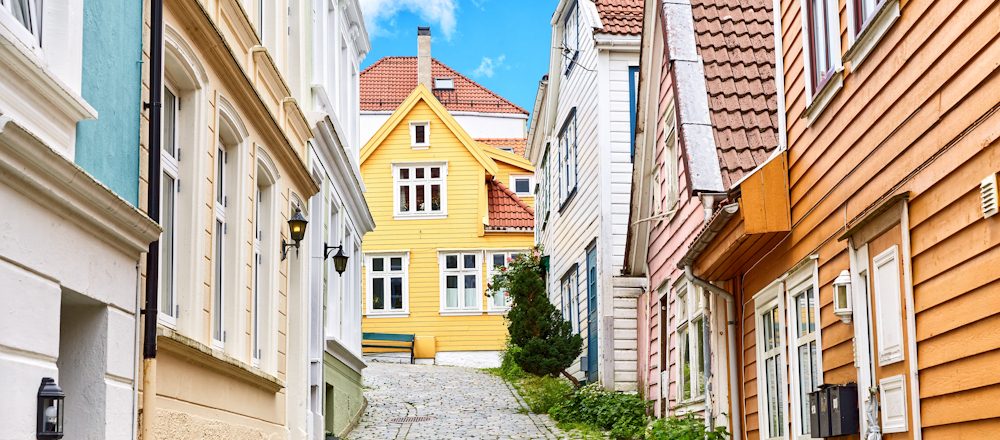
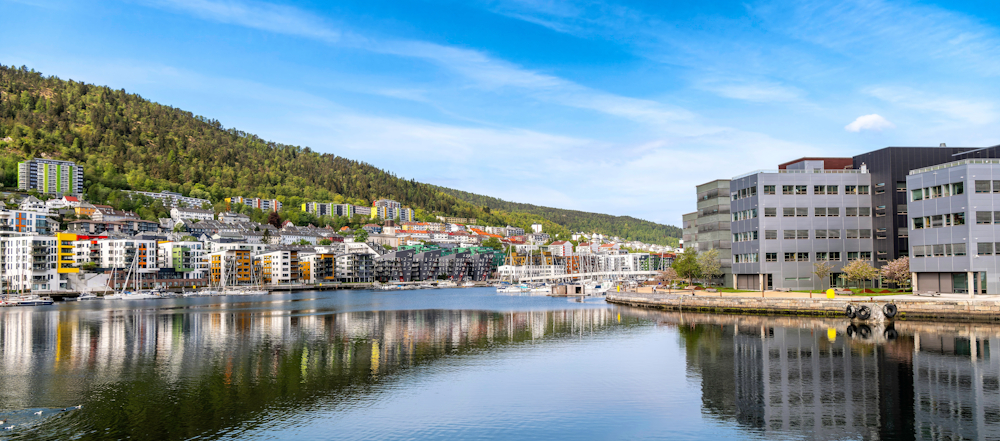
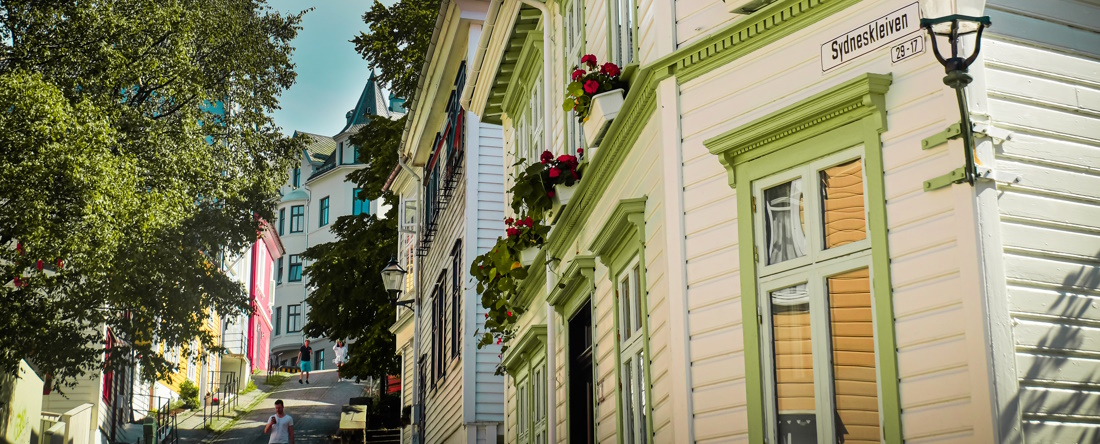
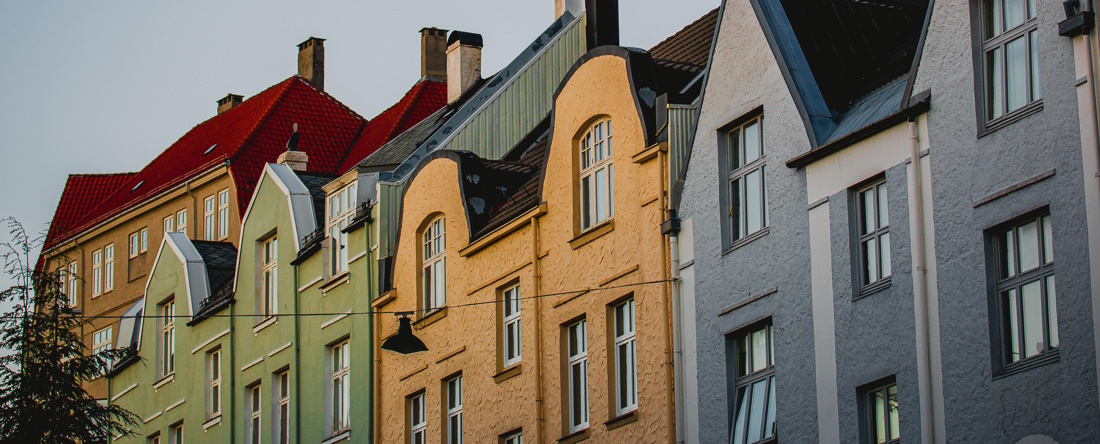
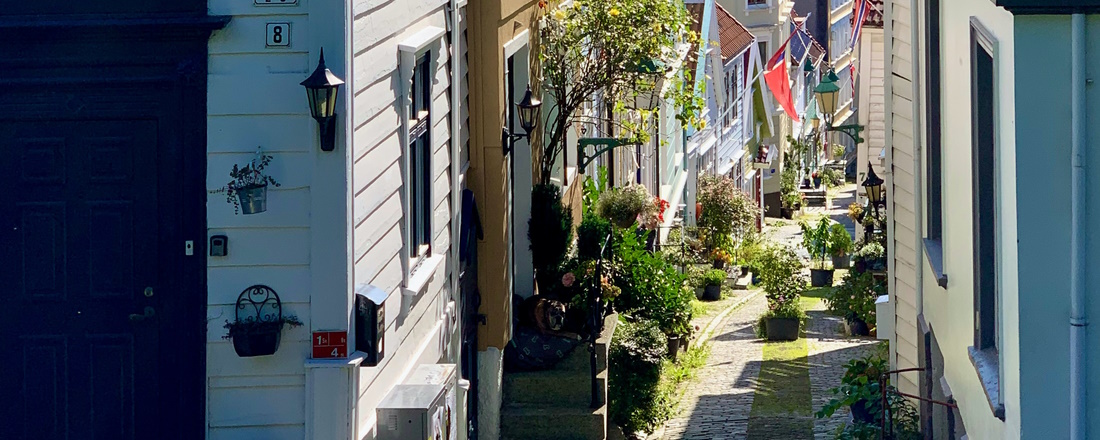 Nordnes
Nordnes